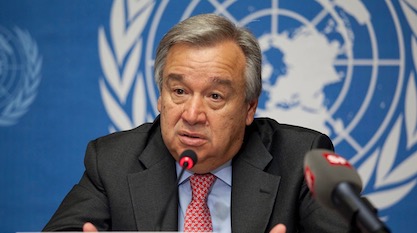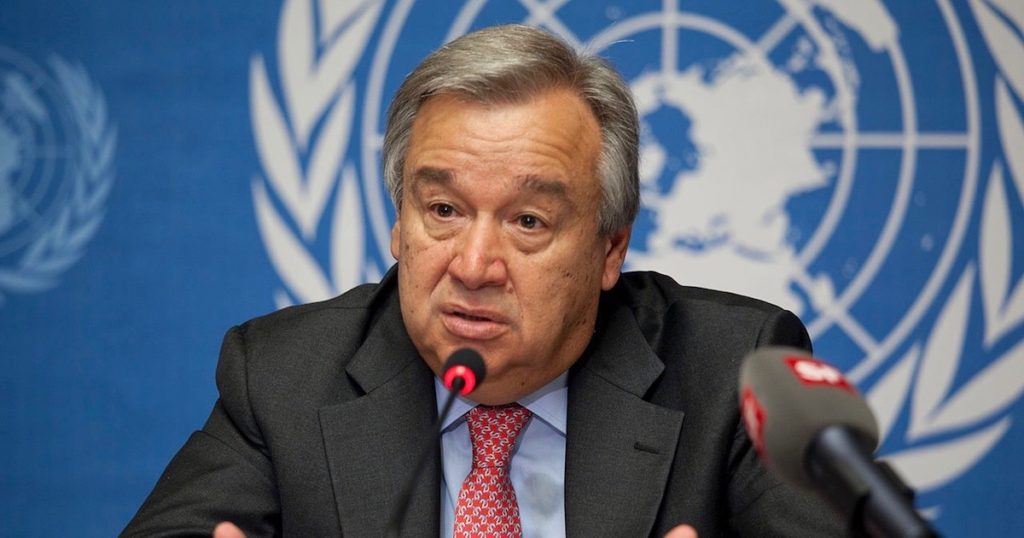 Culture & Ethics
Culture & Ethics
Time to Make Fossil Fuel Industries “Pay”?


Ever since the COVID-19 crisis erupted, commentators have predicted that activists would try to hitch global warming to the ongoing fight against coronavirus — not that this required true prophetic gifts. Activists think every crisis requires the dilution of national sovereignty, increased regulations, wealth redistribution, and higher taxes — including to combat the obesity epidemic.
Unsurprisingly, and right on schedule, U.N. Secretary General António Guterres contributed an op-ed in the New York Times — filled with the usual global-warming bromides — arguing that the fights against the virus and climate change should be joined into one six-point “climate positive” plan. You like economic suppression? You like heavy-handed government regulatory control? You like globalism? Then, Guterres is your man.
He writes:
A recovery from the coronavirus crisis must not take us just back to where we were last summer. It is an opportunity to build more sustainable and inclusive economies and societies — a more resilient and prosperous world.
A Lack of Specifics
How would Guterres get from here to there? The piece is mostly bereft of policy specifics — specifics breed opposition, after all — but there is one point he makes that we should focus on clearly because of its catastrophic certainty (my emphasis):
Looking forward, public funds should invest in the future, by flowing to sustainable sectors and projects that help the environment and climate. Fossil fuel subsidies must end and polluters must pay for their pollution.
Think about exactly what Guterres is advocating in this mushy paragraph. By “polluters must pay for their pollution,” he isn’t referring to the cost of cleaning up oil spills or the remediation of fouled rivers, for which actual polluters are properly held responsible. Rather, he means requiring fossil-fuel enterprises to pay for all perceived costs allegedly caused by carbon emissions.
What “Must Pay” Means
If recent history and the statements of green activists are any guide, “must pay,” is likely a passive way of saying bankrupting the oil industry, natural-gas industry, coal industry, fracking enterprises, pipeline companies, oil and gas storage facilities, oil refineries, etc. — all of which would be strip-mined of every asset they own in the way asbestos companies (actual polluters) were destroyed — with the money used to subsidize industries favored by the would-be planet savers and to pay destitute areas of the world to stifle natural-resource development. Think about the corruption potential
In other words, in the great cause of “saving the planet,” open season would be declared against energy industries engaged in perfectly legal enterprises that have been responsible for creating the best standard of living in human history. The actual outcome of such a policy would be the obliteration of wealth, the stifling of innovation, and the loss of countless jobs.
Toward the end of his piece, Guterres writes:
For years, we have failed our young by damaging the planet and failing to protect the people most vulnerable to crises. We have a rare and short window of opportunity to rectify that — by rebuilding a better world, not reverting to one that is good for only a minority of its citizens.
Baloney. Authoritarian central planning never works and it wouldn’t “save the planet.” It would just make us all less prosperous and free.
Photo: António Guterres, by U.S. Mission Photo by Eric Bridiers / Public domain.
Cross-posted at The Corner.
